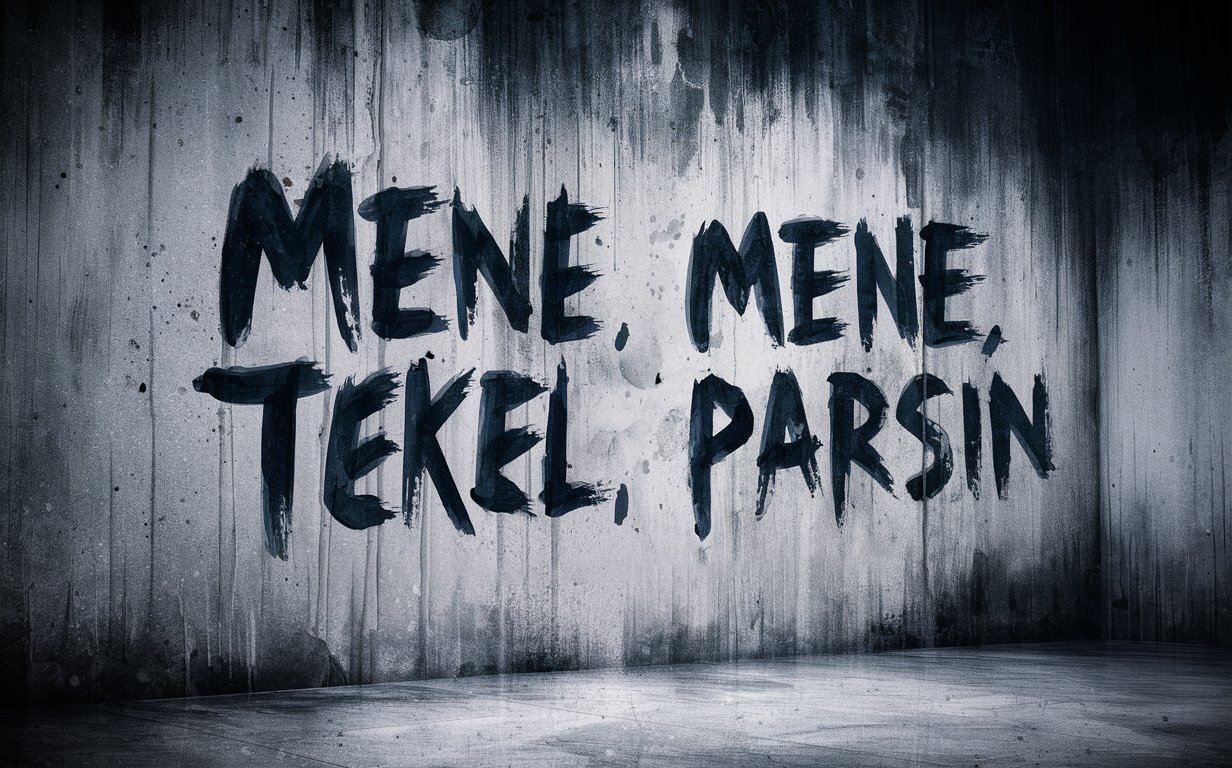In Daniel chapter 5, we are presented with a chilling scene: a hand appears and writes a cryptic message on the wall during a royal banquet thrown by King Belshazzar. The message—Mene, Mene, Tekel, Parsin—was interpreted by the prophet Daniel as a declaration of judgment. Belshazzar’s kingdom was at its end, his days numbered, and his reign weighed and found wanting.
But the story isn’t just about God’s judgment. It’s about a lesson ignored, a warning wasted.
Daniel’s rebuke to Belshazzar is telling. He does not merely explain the meaning of the writing; he confronts the king with what he should have known:
“But you, Belshazzar his son, have not humbled your heart, though you knew all this.”
—Daniel 5:22 (ESV)
What did Belshazzar know? He knew what his father, King Nebuchadnezzar, went through. A once-prideful ruler who was humbled by God—driven away from society, made to live like a beast, and only restored once he acknowledged that the Most High rules over the kingdoms of men.
Belshazzar had seen the consequences of pride firsthand. He had the testimony of his own father as a living warning. And yet, he chose to ignore it. He chose to “live his own life” and make his own mistakes. Sound familiar?
So many of us today operate under the same mindset. “Let me figure it out on my own.” “I need to make my own way.” But too often, that’s not curiosity or independence—it’s pride. It’s the same pride that blinded Belshazzar and led to his downfall. He didn’t just have the warning of the writing on the wall; he had a lifetime of testimony in front of him. He simply refused to see it.
It’s easy to look at this story and think, “Why didn’t he get the same mercy Nebuchadnezzar received?” After all, Nebuchadnezzar got time—years, in fact—to come to repentance. But Belshazzar didn’t even get one more day.
Was that unfair?
Not at all. Scripture shows us that God is full of mercy and compassion. But God also looks at the heart. Nebuchadnezzar was eventually willing to humble himself. Belshazzar had already hardened his heart. He mocked God by drinking from the sacred vessels taken from the Temple, praising false gods while desecrating what was holy. His actions weren’t those of someone ignorant or naïve—they were deliberate, defiant, and prideful.
God’s Word isn’t silent today. The handwriting isn’t just on the wall—it’s in the Word. The Bible is filled with the testimony of those who have gone before us. We don’t need to repeat their mistakes. God has given us a guide—not to restrict our lives, but to preserve them. To protect us from the kind of destruction Belshazzar faced.
No one is perfect. We all fall short. But the call of Scripture is to listen, to remember, and to humble ourselves. We cannot plead ignorance when we’ve been given the truth. Like Belshazzar, we have seen what pride brings. But unlike him, we still have time to change.
Belshazzar only had his father’s life as an example to live by, and that should have been enough. We have so much more. Our Lord Jesus Christ humbled Himself and became flesh, living the perfect life to show us what true faith lived out could really be. We have the perfect example to live by, and the living Word to guide us.
Don’t wait until your kingdom falls. Don’t ignore the signs around you. The Word has already been written—now it’s time to read it, believe it, and live by it.
The handwriting is already on the wall. Make your own choice.




